Telesforas Laucevičius gas passed away. He was born in 1942 and was a member of the Lithuanian Jewish Community and a client of the Saul Kagan Welfare Center. Our deepest condolences to his wife, family members and all who knew him.
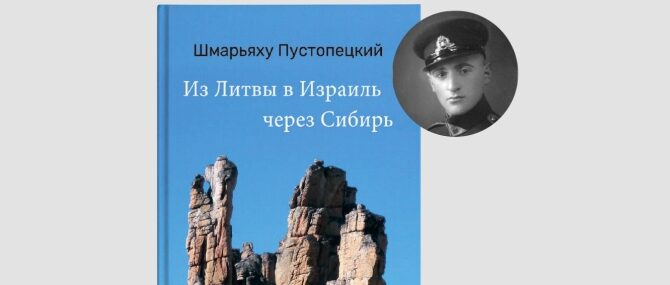
From Lithuania to Israel via Siberia
The Vilnius Jewish Public Library is pleased to announce a presentation of a translation of Shmaryahu Pustopetsky’s book From Lithuania to Israel via Siberia on Monday, June 16.
Translators Regina Kopilevich, an accomplished genealogist and tourist guide for Jewish Vilna, and historian and author Dalia Epšteinaitė will discuss the book with sociologist and historian Violeta Davoliūtė who specializes in family studies as moderator.
Pustopetsjy was a military officer in pre-World War II independent Lithuania, and was deported to Siberia, He was an active member of the Beitar movement before the Holocaust. In the book, he discusses both world wars, Litvak culture in the 1930s, the story of the so-called prisoners of Zion and the brutal prison camps under Stalin.
Time: 6:00 P.M., Monday, June 16
Place: Vilnius Jewish Public Library, Gedimino prospect no. 24, Vilnius
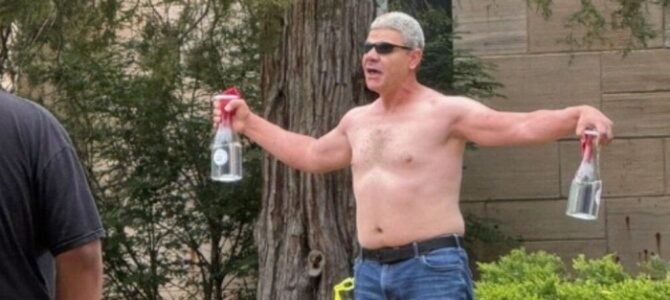
Terrorist Lights 12 Jews on Fire in Colorado
Mohamed Soliman, an illegal alien resident in El Paso, Texas, and originally from Egyot, used a home-made flamethrower and Molotov cocktails to set 12 Jews on fire Sunday afternoon in Boulder, Colorado.
One victim was a Holocaust survivor.
Soliman targeted the weekly Sunday silent march by members of the Jewish community in Boulder held to remember the hostages still kidnapped in Gaza.
Soliman yelled “free Palestine” and claimed the Coloradan Jews were “burning my people.”
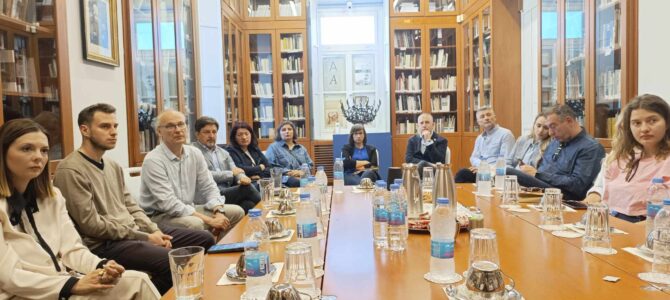
New Holocaust Remembrance Project Echoes
A new Holocaust remembrance project called Echoes kicked off in May of 2025, subtitled “Conversations with Holocaust Survivors using Artificial Intelligence.” The project was first demonstrated in Thessaloniki, Greece recently with staff from the Lithuanian Jewish Community participating. Thessaloniki has had a Jewish community for over 2,000 years.
Project partners include the Saloniki Jewish Museum, the European Commussion, CERV, the Lithuanian Jewish Community and others.
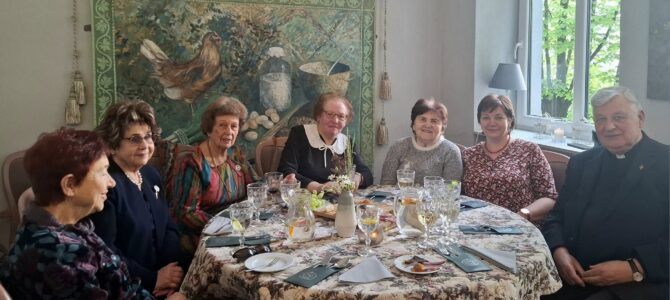
Kaunas Jewish Community Honors Righteous Gentiles
Although sadly their numbers continue to diminish naturally, Righteous Gentiles were again honored by the Kaunas Jewish Community at their annual event.
Kaunas Jewish Community chairman Gercas Žakas said: “It is also great to receive these old family friends of ours we know so well, and it is equally great to meet these new descendants of rescuers and to make new friends with them.”
Architect Tauras Budzys attended the event for the first time this year. He’s been marking the graves of Righteous Gentiles with a symbol of his own design, at his own initiative and expense. Conservative MP Paulė Kuzmickienė also attended. She initiated legislation for Lithuania’s Day of Righteous Gentiles, March 15, in parliament back in 2022. The duet Perfect Nemesis provided musical accompaniment for the evening.
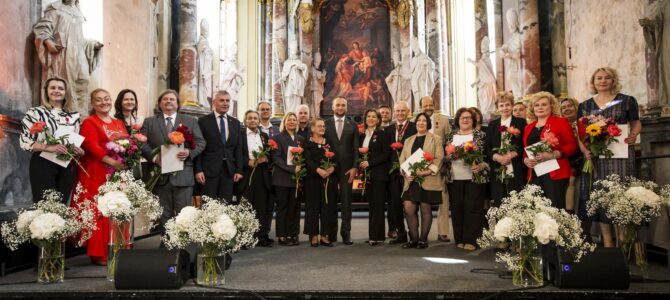
Moshe Shapiro Honored on Lithuanian Ethnic Minorities Day
Švenčionys Jewish Community chairman Moshe Shapiro received the Silver Honor Award from the Lithuanian Ethnic Minorities Department on Lithuania’s Ethnic Minority Communities Day May 21 at St. Catherine’s Church in Vilnius.
Shapiro was recognized for his contributions to preservation of Jewish historical memory, tireless community work, working for integration, educating the younger generations and contributing to the culture of Lithuanian ethnic minorities.
Pabradė municipal cultural center director Lolita Vilimienė presented the prize to chairman Shapiro.
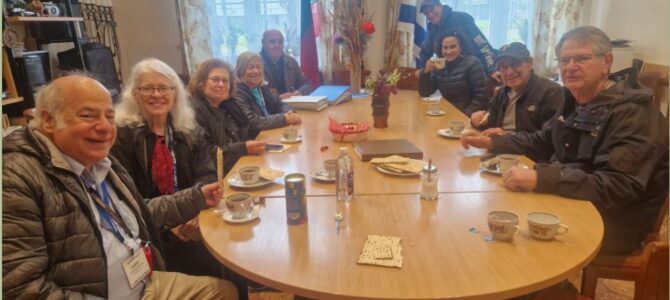
Visitors with Roots in Panevėžys
The Panevėžys Jewish Community received visitors with roots in the northern Lithuanian city last week. Larry Shuman and wife Barbara live in Pittsburgh. Grandfather Jakob Shuman and great grandparents Natan and Yelka Shuman lived in Panevėžys and went to America in 1890. Gary Kaiserl also comes from the USA. His grandfather Israel and great-grandmother Yulia Levit (their surname used to be Cezarski in Panevėžys) left for America between 1880 and 1890.
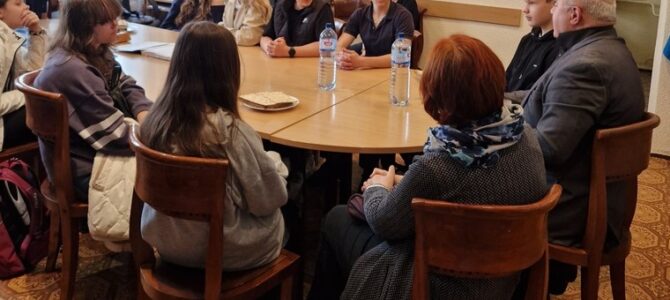
Local High School Tolerance Center Visits Panevėžys Jewish Community
Ninth-graders and teacher Jekaterina Ledneva from the Velžys Pro-Gymnasium in the Panevėžys set up a Tolerance Center at their school and visited the Panevėžys Jewish Community as part of that initiative. They wanted to know more about the pre-Holocaust local Jewish population, Jewish customs and traditions, holidays and what happened in the Holocaust. The students visited the ghetto territory in the northern Lithuanian city and laid floral wreaths at the monument marking the former ghetto gate.
Panevėžys Jewish Community chairman Gennady Kofman spoke to the young people as part of the Community’s ongoing educational outreach program and spoke about how Jews and Lithuanians lived together before the Holocaust, often enough as co-owners of businesses, sharing their expertise. They celebrated holidays together and shared in their joys and misfortunes, sometimes sacrificing their last bit of bread for one another, Kofman said. Russian and Jewish children attended the same high schools both in Tsarist Russia and independent Lithuania, Kofman recalled.
The ninth-graders also learned about Jewish holidays including Passover, Purim, Rosh Hashanna and others, and the stories behind these holidays. Kofman spoke about kosher food and why healthy food and cleanliness is so important in Jewish tradition. The students had the chance to sample matzo bread and heard the story of unleavened bread during the Exodus from Egypt. The students posed many questions and had a chance to tour the Community building as well.
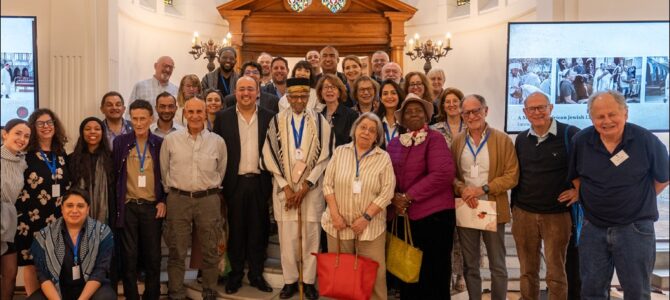
Jewish Communities across Africa
Photo: Delegates from around the world attended the Jewish Africa Conference
The third Jewish Africa Conference, an event spearheaded by the American Jewish Committee (AJC), Mimouna Association (Morocco) and the American Sephardi Federation (ASF), took place during April in Cape Town.
The conference was supported by the Cape SA Jewish Board of Deputies, with a welcome address by chair of the board Adrienne Jacobson. Predecessor conferences were held in New York in 2019 and in Rabat, Morocco, in 2022. The event took place at the Old Shul, the SA Jewish Museum and the Kaplan Centre for Jewish Studies at the University of Cape Town.
According to Wayne Sussman, director of the AJC Africa Institute who oversaw conference proceedings, “We all know that the South African Jewish community has made a rich contribution to Jewish life around the world. This is also true with other African Jewish communities. They have strong traditions and customs. Many made a huge impact on their respective countries. This conference allowed Jews from across Africa and scholars interested in Jewish African life today to come together and make sense of how we carry on building our respective communities and ensure we preserve our past properly.”
While we in South Africa tend to think of Jewish life from an Eastern European bias–because the bulk of our community is of Ashkenazi origin–Jewish life in fact traces a great deal back to Africa. With roots in ancient Egypt, Jewish religious and cultural practice are certainly a significant feature of the African continent.
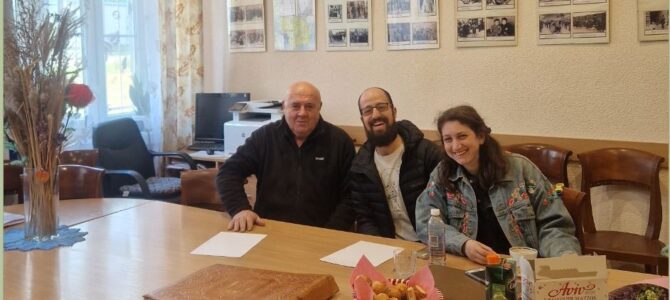
Holocaust Historian, Litvak Wife Visit Panevėžys Jewish Community
Noah and Frances Schoen (Milinsky) visited the Panevėžys Jewish Community May 12. The family lives in Pittsburgh. Noah is an historian and teacher who reseraches the Holocaust. His lectures discuss forms of anti-Semitism from prejudice to genocide. He was an eye-witness at the Tree of Life synagogue in 2012 when a gunman opened fire on the congregation.
His wife teaches children aged 11 to 14 and leads summer youthg camps. Her father’s family comes from Panevėžys and immigrated to America early on, preserving their Litvak heritage.
Chairman Gennady Kofman spoke to them about the Community’s current activities and showed them around the archive collection, and they talked about anti-Semitism in Europe and America. Kofman gave them a tour of the northern Lithuanian city focusing on Jewish heritage sites.
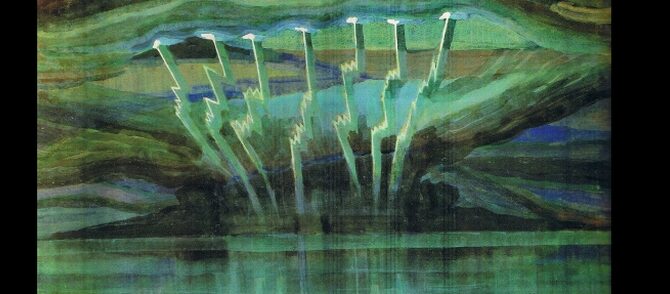
Kaunas Jewish Community Celebrates Righteous Gentiles from the Čiurlionis Family
As part of the Year of Mikalojus Konstantinas Čiurlionis, the Lithuanian artist and composer, the Kaunas Jewish Community presents two events June 2 to celebrate the Righteous Gentiles in his family.
At 4:00 P.M.a plaque will be unveiled commemorating Čiurlionis’s wife Sofija, daughter Danutė and son-in-law Vladimir Zubov, all people who rescued Jews. The plaque will be located on the building which houses the memorial apartment once occupied by Sofija. The address is Žemaičių street no. 10, Kaunas.
At 6:00 P.M. Vyautas Magnus University will host a concert dedicated to Sofija, Danutė and Vladimir at their Great Hall (Gimnazijos street no. 4, Kaunas) featuring music and recollections by pianist Rokas Zubovas and his wife Sonata, pianists and organists who have received the Čiurlionis prize, Kaunas Jewish Community member Robertas Lozinskis and Vytautas Magnus University’s own choir Vivere Cantus.
These events are free and open to the public.
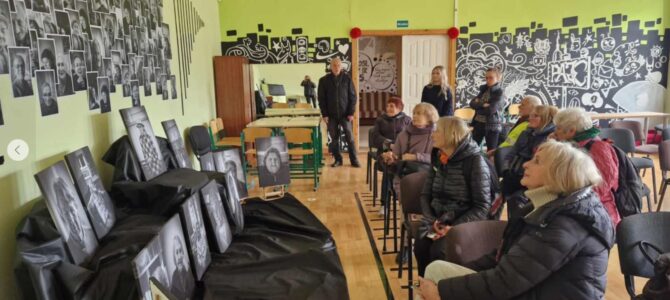
Kuršiai Social Center Clients Meet Panevėžys Jewish Community
Members of Panevėžys chapter of the Kuršiai Social Center visited the Panevėžys Jewish Community and met with chairman Gennady Kofman.
Kuršiai members had the opportunity to learn about Jewish history and culture and the Holocaust. Kofman spoke in detail about the Jewish community who lived in Panevėžys before the Holocaust, their contribution to the development of the horthern Lithuanian city and their mass murder.
He emphasized Jewish education, religious and cultural traditions and efforts to preserve historical memory. The audience learned about the current activities of the Panevėžys Jewish Community including educational projects and memorial initiatives.
Attendees thanked the chairman and the Community for the warm reception and discussed their understanding of cultural diversity and values
Condolences
Julija Ruminienė has passed away. She was born in 1938. She was a member of the Šiauliai Jewish Community and a client of the Saul Kagan Welfare Center. Our deepest condolences to the children and friends she leaves behind.
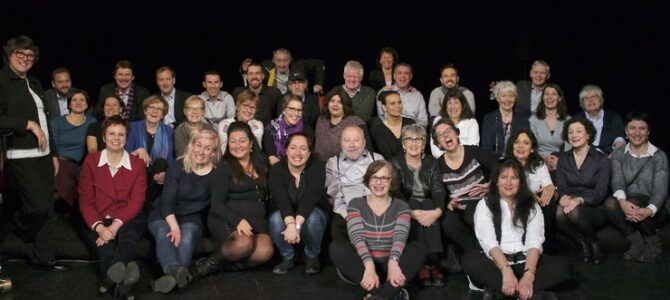
Hazamir Choir from Helsinki to Perform
The Lithuanian Jewish Community is pleased to host a concert by the exceptional Jewish choir Hazamir from Finland. The choir has existed for more than 100 years (founded in 1917) and has performed Jewish music or audiences in Europe and America, and has even appeared on MTV. Their repertoire includes traditional songs in Hebrew and Yiddish, but also Swedish, Finnish and more recently Russian as well. This will be their only appearance in Vilnius during this tour.
Registration is required by sending an email to zanas@sc.lzb.lt.
Time: 2:00 P.M., Sunday, June 8
Place: Lithuanian Jewish Community, Vilnius
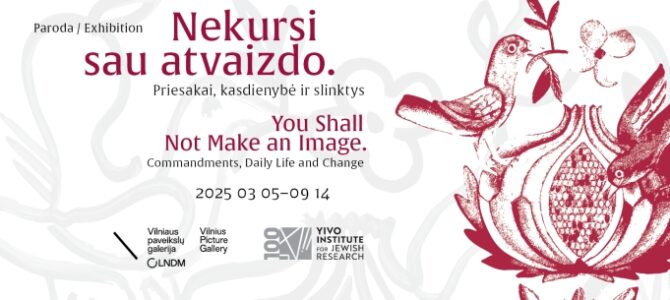
Lecture on Early Jewish Photography in Lithuania
The Vilnius Picture Gallery and the Lithuanian Museum of National Art will host a lecture by Dainius Junevičius called “Early Lithuanian Photography: Jews on Both Sides of the Lens” at the picture gallery at 5:30 P.M., Tuesday, May 20. The event is free and open to the public.
Junevičius is an expert on the history of photography. He will speak on the role Jewish photographers played in early Lithuanian photography from the Jewish owners and photographers of first photo studios in Vilnius to the work of talented photographer Miron Butkovski (1865-1938) who earned the Vatican’s gratitude fir his photos of Vilnius’s churches in the late 19th century, and will also speak about the evolution of photography in Lithuania and in general and the pioneers in other locations in Lithuania.
.
His lecture will include demonstrations of the earliest photographs of Jews starting with those from a Russian ethnographic exhibit in 1867 and extending through the Jewish ethnographic field surveys led by An-sky from 1912 ro 1914.
The lecture and slideshow is part of the exhibit “You Shall Not Make an Images” the Vilnius Picture Gallery and YIVO opened March 5 and which will run till September 14. Registration is not required for the lecture and there is no fee for admission..
Time: 5:30 P.M., Tuesday, May 20
Place: Vilnius Picture Gallery, Didžioji street no. 4, Vilnius

Sabbath Times
The Sabbath begins at 9:08 P.M. on Friday, May 9, and concludes at 10:20 P.M. on Saturday in the Vilnius region. Sabbath candles should be lit at 8:50 P.M. and completed before sunset at 9:08 P.M. Thursday, May 8th is the day 80 years ago Nazi Germany surrendered unconditionally to the Allies Great Britain, the United States and the Soviet Union (Nazi capitulation was on May 9 Moscow time and Victory Day is always celebrated on May 9 in Russia, Belarus and most other former Soviet republics).
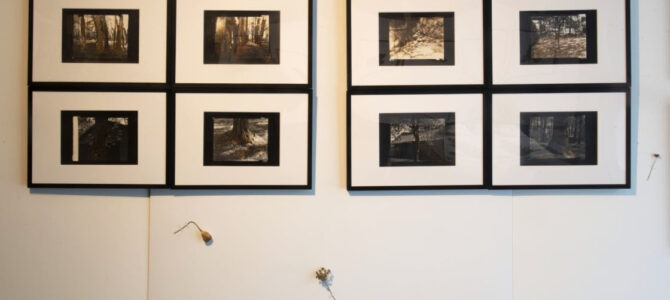
Vilna Gaon Museum Offers Free Entrance on Museum Night in Vilnius
The Vilna Gaon Jewish History Museum is staying open late and offering free admission at three of its facilities to celebrate Museum Night on May 17, the night most museums in Vilnius offer free addmission and stay open late. The Litvak Identity Museum, the Holocaust Exhibit at the Green House and the Samuel Bek Museum at the Tolerance Center are offering their own programs including an outdoor café open all evening and new exhibit openings. For more information, send an email to aiste.brusokaite@jmuseum.lt.
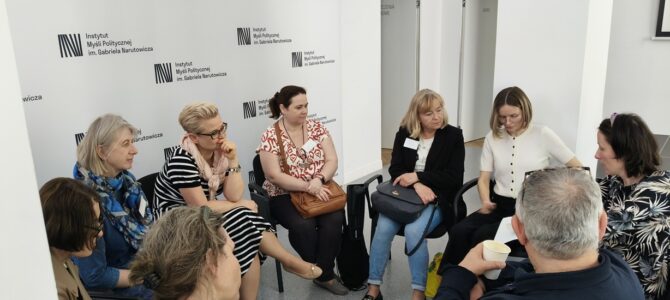
New Holocaust Education Initiative in Poland and Lithuania
A new project called “Education against Anti-Semitism. Learn from the Past to Understand Today’s Challenges. A Selection of Multimedia Teaching Aids” began in April. Over 2 years project participants will create and publicize a varied selection of multimedia aids based on individual historical sources for use by Lithuanian and Polish teachers, history teachers, human rights educators and young people from 14 to 19.
The aim is to foster understanding of the current state of anti-Semitism and the danger of stigmatization and isolation through teaching about the Holocaust.
The coordinator is the Polish organization Ośrodka Karta. Partners include Fundacja Centrum Edukacji Obywatelskiej, Ośrodek Brama Grodzka — Teatr NN, Fundacja Pogranicze, Fundacja Otwarta Edukacja and the Lithuanian Jewish Community. The project is dunded by the EU but is editorially independent.

Lithuanian MP Defendant Testifies in Case for Inciting Hate against Jews, Holocaust Denial
The BNS and Elta news agencies report Lithuanian member of parliament Remigijus Žemaitaitis is scheduled to testify in his own defense at a Vilnius district court Wednesday. He stands accused of violating Lithuanian laws against sowing ethnic discord and Holocaust denial.
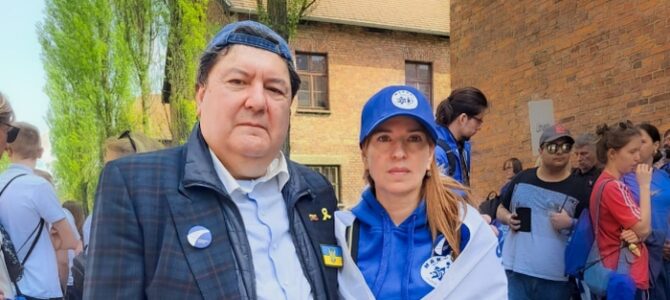
Šiauliai Jewish Community at Auschwitz for March of the Living
For the fourth time now the Šiauliai District Jewish Community participated in the annual March of the Living at Auschwitz in Poland.
Members followed the path of Jewish prisoners marched to their deaths.
The event was attended by Jews and others from around the world.

